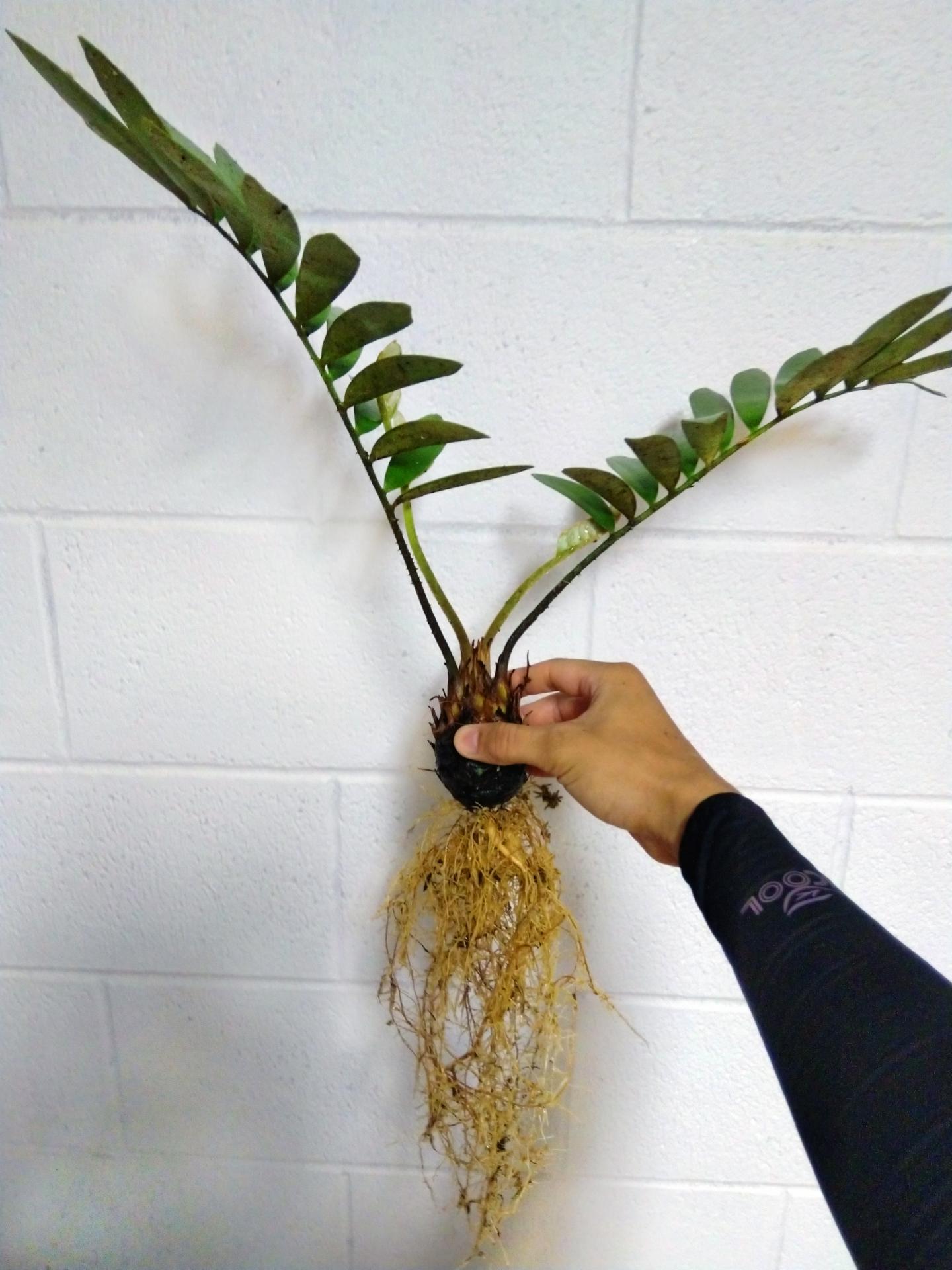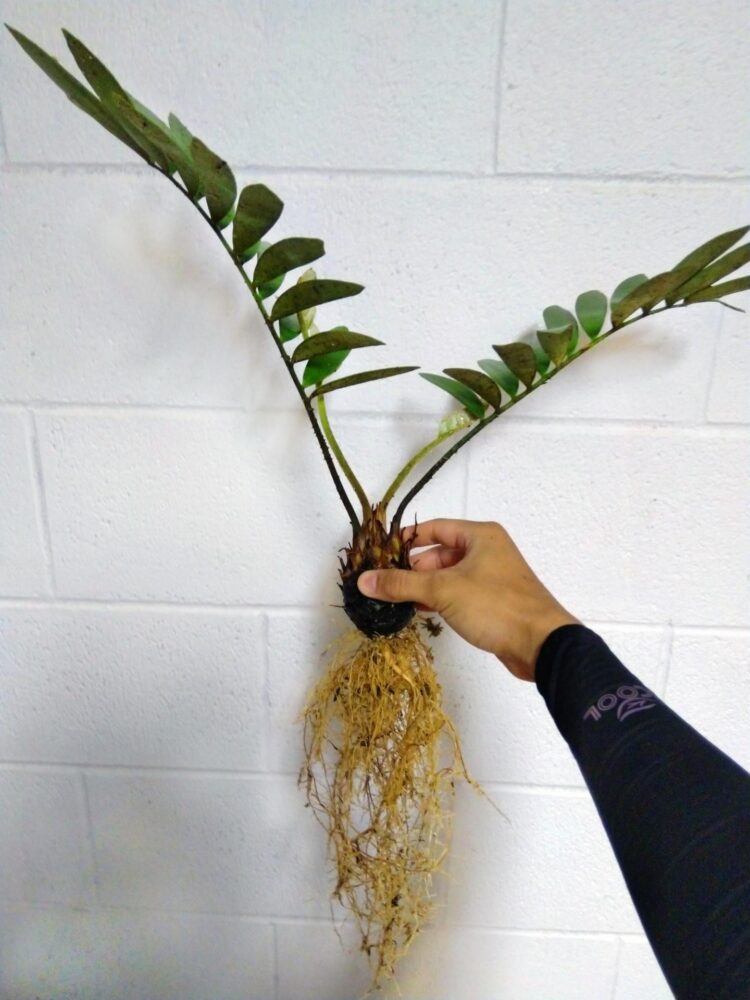
Credit: University of Guam
In a first-of-its-kind study within cycad horticulture literature, University of Guam researchers have found that the use of anti-transpirants neither help nor hinder successful propagation of cycad stem cuttings.
The Guam-based study, published Oct. 22 in the journal Tropical Conservation Science, investigated whether retaining leaves during the propagation of cycad stem cuttings conferred any benefit to propagation success. Additionally, two anti-transpirant products were utilized to investigate their efficacy during the propagation process.
Leaves perform a variety of critical functions for plants, including the transport of water and nutrients from the roots via transpiration, the synthesis of useful sugars via photosynthesis, and the reduction of water loss via the closing of stomata, or little openings on the undersides of the leaves. Horticulturists sometimes manipulate these openings to the plant’s benefit.
Anti-transpirants are products used in the commercial fruit industry to reduce water demands during periods of drought and have been shown to be useful during grafting trials of some plants. Some of these products work by coating the stomata, preventing the escape of gases and thereby water loss. Others purportedly induce chemical reactions within the plant to help reduce water loss. One of each type of anti-transpirant was used for the studies.
The study tested the use of anti-transpirants on two species of Zamia cycads.
“To our knowledge no anti-transpirant product has ever been used on any cycad species prior to these studies,” said Benjamin Deloso, a cycad specialist who led the study as part of his master’s thesis at UOG.
Numerous traits were measured throughout the duration of the study, including the speed of adventitious root formation, the behavior of the retained leaves, the date of first leaf emergence, and plant survival.
The results revealed that leaf retention on stem cuttings yielded no beneficial or detrimental influence on propagation success or the speed of adventitious root formation and that when cycad plants are healthy, regeneration of roots and leaves is possible from stem cuttings when under the care of an experienced cycad horticulturist.
“You can think of a healthy cycad stem as a bank account. Even if you experience some losses — loss of roots or leaves — you still have reserves in the account that can be used to recover,” Deloso said.
The University of Guam continues to publish original research and expand knowledge on cycads, the world’s most threatened plant group.
Although this latest research did not include Guam’s native cycad, Cycas micronesica, known locally as fadang, the research is of interest to its conservation.
“As a native CHamoru, I am concerned about the state of Guam’s environment,” said C.J. Paulino, an environmental science graduate student at UOG and a co-author of the study. “Given the decline of the island’s native fadang, I was happy to contribute to research that would benefit its conservation.”
###
Media Contact
Jonas Macapinlac
[email protected]
Related Journal Article
http://dx.





